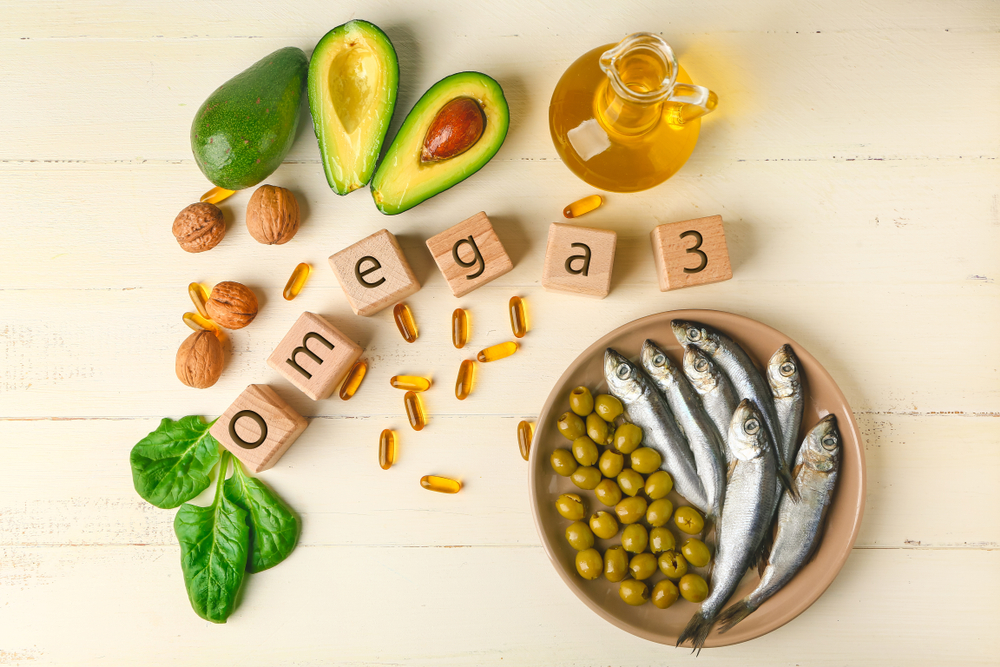When it comes to your dog’s diet, fats often get a bad reputation. However, not all fats are created equal. Healthy fats play a critical role in keeping your dog active, energetic, and healthy.
From boosting energy levels to improving their coat and supporting brain development, fats are an essential part of a well-rounded diet.
In this article, we’ll explore the importance of healthy fats for dogs and share practical tips on how to incorporate them into your dog’s meals safely and effectively.
What Are Healthy Fats for Dogs?
Healthy fats are vital nutrients that give your dog energy and support essential bodily functions. These fats come from natural sources like fish, seeds, and certain oils and are rich in omega-3 and omega-6 fatty acids.
These two types of fatty acids are essential since your dog’s body cannot produce them independently.

Omega-3 fatty acids, found in fish oil and flaxseed, promote brain health, reduce inflammation, and improve skin and coat condition.
Omega-6 fatty acids, commonly found in poultry and plant oils, are important for skin health and cellular function.
It’s equally important to distinguish healthy fats from harmful ones. Saturated fats and trans fats, often found in processed foods, can lead to weight gain and other health problems.
By focusing on high-quality, nutrient-rich sources, you can give your dog the fats they need without unnecessary risks.
The Benefits of Healthy Fats for Dogs
Healthy fats bring a host of benefits to your dog’s overall well-being, supporting both their physical and mental health.
Energy Source
Fats are a highly concentrated energy source, providing more than twice the energy of proteins or carbohydrates.
Active dogs, working breeds, and even playful pups benefit from the sustained energy fats provide. If your dog is always on the move, healthy fats ensure they have the fuel they need to stay energetic.
Coat and Skin Health
If your dog’s coat looks dull or their skin feels dry, adding omega-3 and omega-6 fatty acids to their diet can make a noticeable difference.
These fats nourish the skin and promote a shiny, healthy coat. They also reduce itching, flakiness, and other signs of irritation.
Brain Development and Cognitive Function
Healthy fats, particularly omega-3s like DHA, are crucial for brain development in puppies and for maintaining cognitive health in older dogs.
Whether you’re raising a curious pup or caring for a senior companion, fats support their learning ability, focus, and overall brain function.
Immune System Support
Healthy fats contribute to a stronger immune system by reducing inflammation and helping your dog’s body fight off illnesses. Omega-3 fatty acids, for example, are known for their anti-inflammatory properties, which can benefit dogs with allergies or chronic conditions.
Joint Health
For dogs with arthritis or joint pain, the anti-inflammatory effects of omega-3s can help reduce discomfort and improve mobility. Adding the right fats to their diet can make a significant difference in their quality of life.
Foods Rich in Healthy Fats for Dogs
Incorporating healthy fats into your dog’s diet is easier than you might think. Many common foods provide excellent sources of the fats they need.
Fish and Fish Oil
Fatty fish like salmon and sardines are packed with omega-3 fatty acids, making them a top choice for promoting coat, skin, and joint health. Fish oil supplements are also a convenient option if fresh fish isn’t readily available.
Plant-Based Sources
Flaxseed and chia seeds are excellent plant-based options rich in omega-3s. Coconut oil is another popular choice for its medium-chain triglycerides (MCTs), which support energy and digestion.
Meat and Animal Fats
High-quality meats like chicken, turkey, and beef naturally contain healthy fats. Poultry fat, for example, is a good source of omega-6 fatty acids, which are essential for your dog’s overall health.
Eggs
Eggs are a nutrient-dense food that provides healthy fats along with protein, vitamins, and minerals. They’re easy to prepare and can be served cooked as a tasty addition to your dog’s meals.
Commercial Dog Food
When selecting commercial dog food, check the label to ensure it includes a balanced fat content. Look for foods that list natural sources of omega-3 and omega-6 fatty acids. Avoid products that rely on low-quality or artificial fats.
How to Include Healthy Fats in Your Dog’s Diet Safely
Adding healthy fats to your dog’s meals requires a thoughtful approach. Start by introducing new fats gradually to avoid upsetting their stomach. A slow introduction gives their digestive system time to adjust and ensures they tolerate the new addition.
Pay close attention to portion sizes. Too much fat can lead to weight gain, so adjust the amount based on your dog’s size, age, and activity level.
For example, a highly active working dog may require more fat in their diet than a smaller, less active breed.

Consult your veterinarian or a pet nutritionist before making significant dietary changes. They can help you determine the right balance of fats for your dog and identify any specific needs based on their health and lifestyle.
It’s also important to balance fats with other nutrients. While fats are essential, they should complement proteins, carbohydrates, vitamins, and minerals in your dog’s diet.
Lastly, always store fat sources properly to prevent them from going rancid.
Common Mistakes to Avoid with Fats in Dog Diets
As beneficial as fats are, there are a few common pitfalls to watch out for.
One major mistake is overfeeding fats. Too much fat can lead to obesity, digestive upset, and other health problems. Stick to recommended serving sizes and monitor your dog’s weight regularly.
Avoid using low-quality or processed fats, which may contain harmful additives or provide little nutritional value.
Focus on natural, high-quality sources instead. Similarly, be cautious about an unbalanced intake of fats. An excess of omega-6 without sufficient omega-3 can increase inflammation, so aim for a proper ratio.
Finally, don’t skip consulting your vet. Introducing new sources of fats without professional guidance can lead to unintended consequences, especially if your dog has underlying health conditions.
Give Your Dog a Healthy Boost with the Right Fats
Healthy fats are a cornerstone of your dog’s overall health and well-being.
By including the right sources of healthy fats for dogs, you’ll provide them with energy, improve their coat and skin, and support vital functions like brain development and immune health.
Carefully select high-quality fat sources and incorporate them into your dog’s meals in a balanced way.
For busy pet parents, Gourmet Pet Chef offers fresh dog food like chicken and rice with veggies, making it easy to feed your dog a nutritious meal without the guesswork.
Get in touch with us today!
Related posts:
- Healthy Eating for Urinary Health: The Benefits of Gourmet Pet Chef’s Prepared Chicken and Rice for Dogs with Bladder Stones
- Kelp and Fish Oil: The Key Ingredients in Gourmet Pet Chef’s Nutritious Dog Food
- Health Benefits of Gourmet Dog Food from Gourmet Pet Chef
- Healthy Holiday Dog Food: Comparing Gourmet Ingredients to Christmas Favorites
 Skip to content
Skip to content


